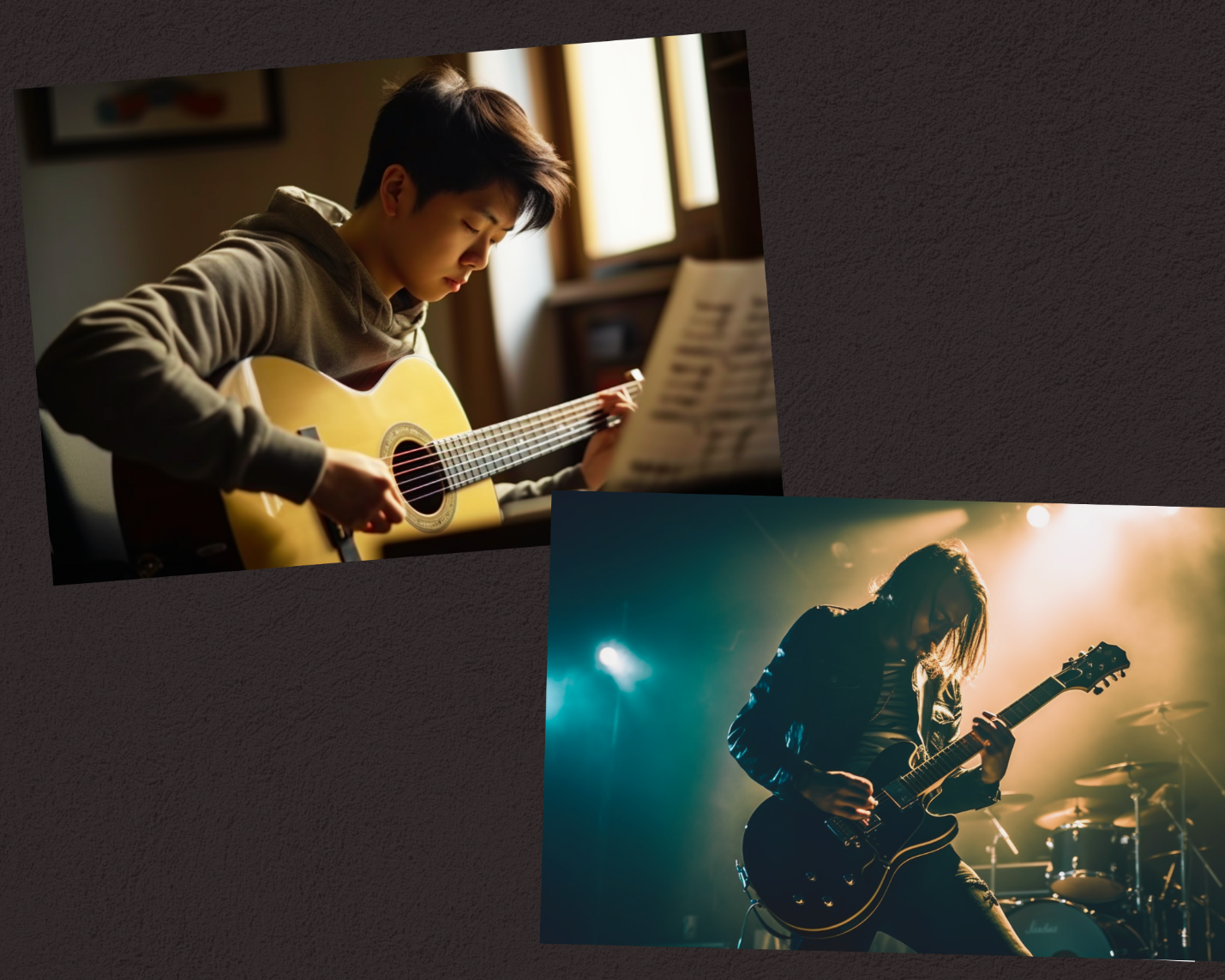Building a Solid Foundation with Music Education
Posted: Jul 5, 2023
Category: Career Goals
keys to success career goals work smarter know your instrument learned skills music business multitasking k&m music school
**Guest post written by Katherine Dvoskin, Co-Founder & Piano Teacher for K&M Music School, San Diego.

1. Deepening appreciation and knowledge of music
Diving into music education is like opening a treasure chest of musical wonders. You get to explore all these different tunes and beats from around the globe. It’s not just about hitting the right notes; it’s like time-traveling through history and soaking in the stories and vibes that make each piece of music a gem. You get to be a musical explorer, and who knows, you might even find a few favorites you never knew existed! They learn about different composers, musicians, and musical movements, expanding their musical horizons and developing a well-rounded musical perspective.
+Can Remote Music Collaboration Be The Key To Growing Your Audience?
Imagine music education as your very own musical toolbox. It's like having a set of superpowers that lets you break down a song into its building blocks. You start picking up on the catchy tunes (that's the melody), the awesome background beats (hello, rhythm), and how everything just seems to click together (thank you, harmony). It's like being a detective, but for music. And the best part? You get to appreciate the magic behind your favorite jams and feel the music on a whole new level. It’s like tasting all the ingredients in your favorite dish! This enhanced level of musical knowledge allows musicians to approach their own performances with a greater level of artistry and interpretation, ultimately leading to more engaging and impactful performances.
2. Developing work ethic and discipline
Music education is like a gym for your character - it seriously beefs up your work ethic and discipline. Think about it: to rock that instrument or belt out tunes like a pro, you got to hit those practice sessions like there’s no tomorrow. It’s all about making practice your BFF and sticking to it. You polish those skills, and before you know it, you’re the master of your musical universe. And guess what? This stick-to-itiveness doesn’t just make you a music ninja; it’s the secret sauce for crushing it in pretty much anything you set your mind to.
Picture this: you’re learning to play an instrument, and it feels like climbing a mountain. But guess what? Music education is like your trusty guide, showing you that with some elbow grease and a never-give-up attitude, you can reach the top. It’s not just about nailing that solo or hitting the high notes; it’s about realizing that the sweet taste of success comes from the sweat and hours you put in. And here’s the cool part – this stick-to-itiveness doesn’t just apply to music. It’s like a secret sauce that you can sprinkle on anything in life, whether it’s acing that math test or learning to skateboard. Music education is like a gym for your brain and character, making you unstoppable in whatever you set your mind to.
+Why Practicing and Rehearsing are NOT the Same Things
3. Enhancing coordination and multitasking skills
Playing an instrument or participating in a musical ensemble requires a high level of coordination and multitasking. Musicians must coordinate their fingers, hands, and breath (in the case of wind instruments or vocalists) to produce the desired sounds. They must also learn to read sheet music and interpret musical notation in real-time, while simultaneously listening to and blending with other musicians in an ensemble setting.
These skills not only improve a musician's ability to perform, but they also have broader applications in other areas of life. The enhanced coordination and multitasking skills developed through music education can benefit individuals in various professions that require juggling multiple tasks and maintaining a high level of focus and attention to detail.
Music education also develops the ability to listen and respond to others in a collaborative setting. Musicians must be responsive to cues from their fellow performers, adjusting their playing to ensure a cohesive and harmonious performance. This ability to listen and collaborate is invaluable in any team-based environment, fostering effective communication and cooperation.
Music education provides a solid foundation for aspiring musicians by deepening their appreciation and knowledge of music, developing a strong work ethic and discipline, and enhancing their coordination and multitasking skills. These skills not only contribute to the development of well-rounded musicians but also prepare individuals for success in various aspects of life beyond the stage. It is through this comprehensive musical education that musicians are equipped to thrive in the dynamic and demanding world of the music industry."
Related Blog Posts:
+What is the most essential skill for becoming a successful artist?
+How To Survive the Winter Slowdown of the Music Industry
+Is there ANY REASON to BE A MUSICIAN!?
IOTM News
Join Our NewsletterVenue Reviews
More Reviews-
 Elexa Dawson
Elexa Dawson
Great atmosphere! Great sound! Elexa Dawson and Weda Skirts had an incredible show last night! Thanks to The Ship!!!
The Ship, Kansas City, MO - Booking Information & Music Venue Reviews · 4 days ago
-
 Annie Sidley
Annie Sidley
We just finished performing a multi-band bill at The Black Cat and it was incredible! The staff was so professional and accommodating and the sound...
-
 Kyle Weber
Kyle Weber
They do Cindy. You'll need to reach out directly to inquire.
The Firehouse, North Manchester, IN - Booking Information & Music Venue Reviews · 1 week ago
-
 Cindy Davis
Cindy Davis
Hello. do you all still do concerts?
The Firehouse, North Manchester, IN - Booking Information & Music Venue Reviews · 1 week ago
-
 Caleb Wolfe
Caleb Wolfe
Currently closed due to flood damage